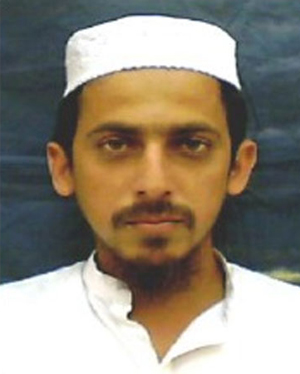Fear, hate drive Islamic State’s India foray
Fear, hate drive Islamic State’s India foray
Mangalore Today News Network
New Delhi, 23 March 2016 : The arsenal of the Islamic State in India was stowed under a bed in a tiny apartment in Mumbra. There was a soldering-iron, a voltage-meter, a pair of pliers and a carton of match-boxes, their tips waiting to be stripped of their incendiary powder. There was no one in the group who knew how to actually make a bomb, but the group’s more enthusiastic members had armed themselves with do-it-yourself manuals downloaded from the Internet.

For weeks, the new Islamic State cell in India had been preparing for war. In November last year, a message arrived in the Skype inbox ‘farooqahmedg1’, from ‘gumnambhai’. There was Rs 106,000 waiting to be collected from a hawala dealer in Mumbai’s Dongri area. Another Rs 480,000 came in just weeks later, this time to a dealer near the Parsi Agiyari street, off New Memon Street.
In December, the final orders came. Kamlesh Tiwari, a Hindu Mahasabha organiser in Uttar Pradesh, had been arrested for alleged blasphemy against the Prophet. Muslims had rioted in West Bengal, and a bounty had been announced for Tiwari’s head. The person passing off as ‘gumnambhai’ thought the time was right to strike — documents of the National Investigation Agency say this account was operated by Karnataka-born, Raqqa-based Islamic State jihadist Muhammad Shafi Armar.
 The cell’s members, none of whom had ever met their commander, and few of whom had known each other just a few weeks, responded quickly to his call. Their failed plot casts unprecedented light on the new-generation jihadist networks springing up across India, driven by a tide of anger and fear.
The cell’s members, none of whom had ever met their commander, and few of whom had known each other just a few weeks, responded quickly to his call. Their failed plot casts unprecedented light on the new-generation jihadist networks springing up across India, driven by a tide of anger and fear.
Indian jihadist fora saw a wave of discussions on the tide of communal violence which preceded the 2014 Lok Sabha elections. “Such horrific crimes happen when the earth of Allah is not ruled by the law of Allah, i.e., Shariah!!”, explained a user on the encrypted Telegram channel @HindBattle, a popular forum for South Asian jihadists. The Indian subcontinent, it went on, “was under the shade of Shariah for 100s of years”.
War on Islam, a video released on several jihadi forums in January 2015, argued that even worse lay ahead for Indian Muslims. A pseudonymous user, ‘GhazwatulHind’, recorded its contents. In another widely-circulated post, an anonymous writer described how his mother and aunt had been forced to have sex with police personnel, in order to secure his father’s release from prison.
Leaders of discussions on jihadist fora began discussing just how this violence might be fought. The Telegram channel @HindBattle laid out a list of requirements, based on slain al-Qaeda jihadist Anwar al-Awlaki’s instructions for jihadists seeking to operate in the West: hideouts; weapons, “even if basic ones” which were made at home; a recruitment team which could reach out line; and, funding.
“Those who want to work in India and ask why there’s no physical qital (warfare) — well, jihad needs preparations. Are you doing it? Ask yourself,” @HindBattle asked.
Ever since 2013, when members of the Indian Mujahideen breakaway faction Tauhid-ul-Ansar had headed into Pakistan’s north-west to train in combat, Bhatkal-born Shafi Armar and Sultan Armar had been asking Indians they met on the Internet just those questions. The men, the NIA says, spent time on Facebook trawling accounts for potential sympathisers, and systematically cultivating them.
In 2014, the Nadwat-ul-Islam educated seminarian Sultan Armar was killed in fighting around the Islamic State stronghold of Raqqa and his younger brother took up the lead on behalf of the Indian contingent. The organisation eventually cracked apart as feuds exploded over the stranglehold Pakistan’s Inter-Services Intelligence exercised over decision-making. The hardliners wanted large-scale attacks on India; the leadership was pushed by the ISI to do nothing that would spark an India-Pakistan crisis.
The new Jund-ul-Khalifa al-Hind, or the Army of the Caliph in India, followed a template unknown in India. Indian Mujahideen operations had relied on men trained at the Lashkar-e-Taiba’s camps in Pakistan, first using plastic explosive brought in from Bangladesh and then black-market ammonium nitrate slurry. It drew its cadre from the Students Islamic Movement of India, and from personal linkages.
Now, the idea was to build an organisation from genuinely committed volunteers, drawn from the online world — volunteers who would learn their craft from the vast resources available on the Internet.
- Need For ‘Students, Alcohol and Drugs’ survey
- New Synthetic Drugs Trapping Youth
- Mood Modifying Chips - Future of Drug Use
- Ramping up Indo-Bangla border security
- IITM- A premier educational Institution in a forest. What can we learn?
- Former PM, Manmohan Singh: Notable laws passed under his tenure
- Hashish on Ratnagiri Seashore
- The Poor cry out to Us: Do we respond?
- Clandestine Meth Labs Sprouting Across India
- Hydro ganja from Bangkok latest craze among youth in India
- "Memories to Treasure" Dr.Michael Lobo’s new book
- Dominance of Private Universities: Will it make education inaccessible to underprivileged students?
- Monti Phest: A rich heritage of South Canara
- Kashmir Bhavan in Bengaluru: A must visit place
- "MAI and I" Book of Angelic Emotions
- Draupadi Murmu - The New ’President of India’
- Anthony Ashram in the city grows a classic museum
- First College of Fisheries in India - A Golden Jubilarian
- Flushing Meadows - A Vintage Mansion
- The Colonel’s Bequest
- A Mangalorean PM and his RBI Governor Brother: The Extraordinary story of the Benegal Brothers
- There is no higher religion than Truth: Theosophical Society
- L’affaire - Ashu & Yiju of Mangalore
- Mangalore in Kowloon
- 1568 to 2018 AD: 450 years of Christianity in Mangaluru
- Vice President elect Naidu moves on from nadir to zenith, the phenomenal journey
- Embracing the Outdoors: How Heated Jackets Are Revolutionizing Cold Weather Activities
- Efficient and Sustainable Packaging Solutions with FIBCs
- The Hybrid Kilt Revolution | Where Tradition Gets Trendy
- Affordable Elegance | Embrace Style on a Budget with Cheap Kilts
- Unleashing Style and Functionality | Exploring Tactical Kilts
- Mangalore’s Heroic Lady marks 105th Birthday
- Santa the Christmas spirit
- Geriatric care: Mangalore strikes a fine balance
- The Don Who Made Two Empires to Clash
- CHITRAPUR SARASWATS - A Great Kanara Community
- Our new President Ram Nath Kovind’s significant journey to Rashtrapathi Bhavan
- Marriages made in heaven, big fat weddings made in India
- Eid insight - The giver of glad tidings
- CITY INFORMATION
- TRAVEL
- TOURIST INFORMATION
- HEALTH CARE
- MISCELLANEOUS




 Write Comment
Write Comment E-Mail To a Friend
E-Mail To a Friend Facebook
Facebook Twitter
Twitter  Print
Print 


